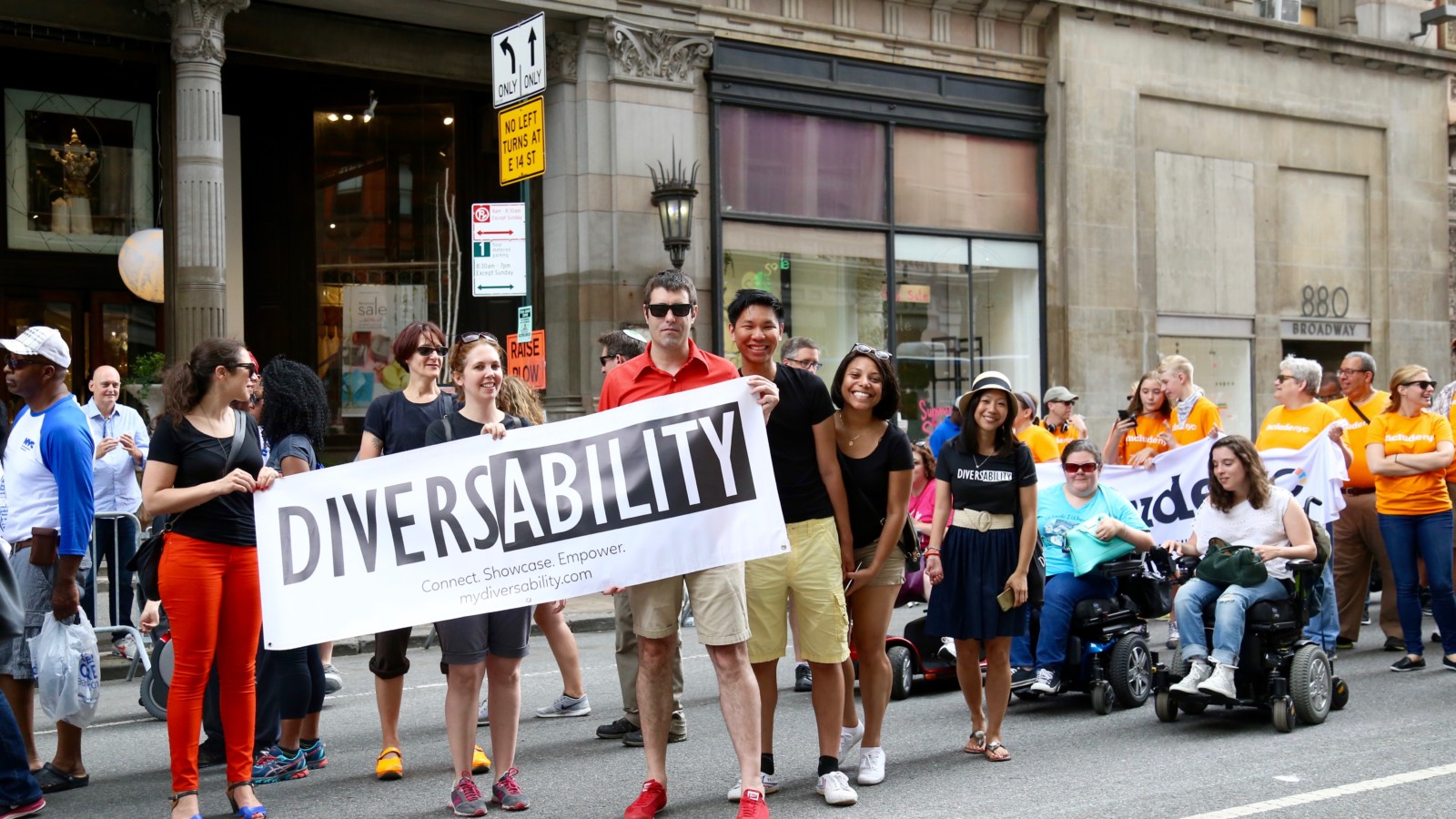Co-written with Arielle Dance, PhD, Content Writer at Diversability
No one is immune to bullying, but when you live with a disability and/or chronic illness, you are even more likely to be the victim of a bully. Studies have shown that children with disabilities are two to three times more likely to be bullied than their non-disabled peers, and bullying doesn’t end at graduation: 31 percent of Americans polled were the victim of a bully in their adult life; it’s important to acknowledge that these statistics do not reflect the instances where the bullying goes unreported.
The impact of bullying can vary amongst adults with disabilities, but some results are similar. Individuals who have been bullied may experience:
- Stress
- Anxiety
- Depression
- Lower self-esteem/lack of confidence
- Lack of sleep
- Headaches or muscle tension
- Frequent absence from school or work
- Lower productivity or performance
Bullying of people with disabilities continues to be problematic beyond school age. Even in workplace environments, people with disabilities are faced with harassment. Cyberbullying and financial exploitation have also opened doors for modern bullying in our community.
When asked about experiences of bullying, members of the Diversability Leadership Collective reflected on emotional memories of their painful pasts– questioning what deemed them as less than in the eyes of a bully or unworthy of respect by their non-disabled counterparts.
Bullying against disabled people may stem from ableism
Disabled people are seen as second-class citizens partially because we are left out of discussions around policy, legislation, accommodation, and representation. Until disabled people are seen as equal citizens bullying will continue.
Nico Meyering, Disabled advocate and AmeriCorps alumnus
Within the disability community, there is a cry for bullies to find some humanity and remember that each person they victimize is a living person with feelings and unique gifts. People with disabilities deserve respect and their voices heard. Each person has a distinctive perspective and experience that they can share. When a bully exercises their power and ableism, it is an attempt to silence people with disabilities.
Understanding the disability experience is crucial
It was echoed that bullies are in need of overwhelming education about the impacts of their behavior and how to interact with people with various disabilities. Education can include spending time with disabled people and understanding the ways they are subjected to ableism on a daily basis and creating intimacy and connection between the bully and the person being bullied to make them aware of the humanity of the person they harmed. It is possible that some people bully out of ignorance about a disability and do not recognize how their actions may impact the emotional health of someone.
“It’s easier to influence behavior by showing people what they can do (be an ally/advocate) rather than telling people what they can’t do (be a bully).”
Marta Elena Cortez-Neavel, Founder & CEO of Abilitee Adaptive Wear
This type of education is the responsibility of workplaces, schools, and our society overall as we help to form compassionate human beings.
Say something if you witness someone being bullied
There is also a heightened need for education of bystanders who witness bullying and need to call out the toxic actions.
If you witness a disabled person being bullied (especially in digital spaces), step in as a bystander by addressing the bully with something like “what makes you say that?” Supporting us in those instances can make a huge difference.
Tiffany Yu, CEO & Founder of Diversability
We, at Diversability, recognize that bullying is not always monolithic and some people with disabilities experience bullying for other aspects of their identity. For this reason, bullying education should cover all the warning signs of bullying including cyberbullying.
What Can You Do?
If you or someone you know is being bullied, here are a few steps you can take to address your hardships:
- Take your concern to a trusted leader: This may be a manager, union representative, or Human Resource department.
- Know your rights: In the United States, there are federal and state laws that protect persons with disabilities from being discriminated against and harassed. Visit www.stopbullying.gov to learn more.
- Advocate for yourself and others: You determine which actions you want to take against the bullies and how you want to respond to their actions. If you witness a person being bullied in their place of work (ex: a store you’re visiting), you can report the incident to a manager or directly to the headquarter offices.
- Seek out Support: As you recover from bullying, it is imperative to determine what your healing looks like. Some examples of this may include mental health resources, virtual or in-person support groups, or peer counseling.
- Beware of Cyber Bullies: Online bullying is rampant. If you notice someone is being bullied or you are experiencing harassment, report the person’s account, comment, or post.
- Educate Yourself and Others: Increased awareness of the dangers of bullying, especially against persons with disabilities, is needed. Ignorance about disabilities intensifies these dangers. Let’s educate our peers about disabilities and how to be kinder human beings. If you are in a place of power, consider specialized education for your team.
More resources: https://www.pacer.org/bullying/info/students-with-disabilities/; https://findado.osteopathic.org/adult-bullying-survey-finds-31-americans-bullied-adult


